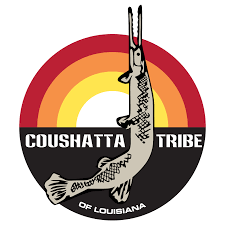On Monday, the Coushatta Nation Appellate Tribal Court summarily dismissed claims of election irregularities brought by a small group of dissatisfied tribal members.

Last month, eight tribal citizens have filed a complaint in Coushatta Tribal Court, challenging the Tribal Election Committee's decision to allow Crystal Williams, Kelly Collins, and Kayla Guillory to appear on the May 31, 2025 ballot. Williams is running for tribal chairperson, while Collins and Guillory are seeking seats on the Tribal Council.
Monday's decision upholds a decision made on April 22, 2025 by the Coushatta Tribal Court.
“Nothing is more important than allowing our sovereign nation to resolve internal matters in a fair and equitable way,” said Crystal Williams, a candidate for tribal chairperson.
Fellow candidates for the Tribal Council, Kayla Guillory and Kelly Collins, also expressed their gratitude for the swift resolution: “We appreciate how Native American customs and the written laws of the Coushatta Tribe provided a prompt and just outcome, ensuring voters can choose from a full slate of qualified candidates.”
Attorney Jack K. Whitehead, Jr. commenting on the court’s decision, noted, “The Appellate Court clearly upheld the Tribal Court’s ruling, dismissing the appeal and affirming that the plaintiffs had no further recourse. On May 31st, voting members of the Coushatta Nation will have the opportunity to participate in a free and fair election.”
More Stories Like This
Native News Weekly (August 25, 2024): D.C. BriefsNavajo Nation Mourns the Passing of Former Vice President Rex Lee Jim
Deb Haaland Earns Endorsement From Communications Workers of America Local 7076
University Soccer Standout Leads by Example
Two Native Americans Named to Democratic Congressional Campaign Committee's“Red to Blue” Program
Help us defend tribal sovereignty.
At Native News Online, our mission is rooted in telling the stories that strengthen sovereignty and uplift Indigenous voices — not just at year’s end, but every single day.
Because of your generosity last year, we were able to keep our reporters on the ground in tribal communities, at national gatherings and in the halls of Congress — covering the issues that matter most to Indian Country: sovereignty, culture, education, health and economic opportunity.
That support sustained us through a tough year in 2025. Now, as we look to the year ahead, we need your help right now to ensure warrior journalism remains strong — reporting that defends tribal sovereignty, amplifies Native truth, and holds power accountable.
 The stakes couldn't be higher. Your support keeps Native voices heard, Native stories told and Native sovereignty defended.
The stakes couldn't be higher. Your support keeps Native voices heard, Native stories told and Native sovereignty defended.
Stand with Warrior Journalism today.
Levi Rickert (Potawatomi), Editor & Publisher


